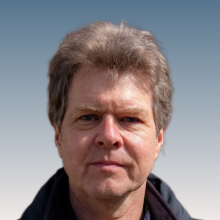Contact
Subject
Wolfgang Weimer-Jehle is a physicist and works in the fields of energy demand, energy supply and energy systems, climate change and climate protection, sustainability, scenario methodology and method research for qualitative system analysis. One focal point is methodological research on Cross-Impact Balance analysis (CIB)
2022
- Garcia-Teruel, A., Scholz, Y., Weimer-Jehle, W., Prehofer, S., Cao, K.-K., & Borggrefe, F. (2022). Teaching Power-Sector Models Social and Political Awareness. Energies, 15, Article 9. https://doi.org/10.3390/en15093275
- Kosow, H., Weimer-Jehle, W., León, C. D., & Minn, F. (2022). Designing synergetic and sustainable policy mixes - a methodology to address conflictive environmental issues. Environmental Science & Policy, 130, 36–46. https://doi.org/10.1016/j.envsci.2022.01.007
- Motschmann, A., Teutsch, C., Huggel, C., Seidel, J., León, C. D., Muñoz, R., Sienel, J., Drenkhan, F., & Weimer-Jehle, W. (2022). Current and future water balance for coupled human-natural systems -- Insights from a glacierized catchment in Peru. Journal of Hydrology: Regional Studies, 41, 101063. https://doi.org/10.1016/j.ejrh.2022.101063
- Vögele, S., Poganietz, W.-R., Kleinebrahm, M., Weimer-Jehle, W., Bernhard, J., Kuckshinrichs, W., & Weiss, A. (2022). Dissemination of PV-Battery systems in the German residential sector up to 2050: Technological diffusion from multidisciplinary perspectives. Energy, 248, 123477. https://doi.org/10.1016/j.energy.2022.123477
2021
- Hummel, E., Weimer-Jehle, W., & Hoffmann, I. (2021). Die Cross-Impact Bilanzanalyse: Grundlagen und Anwendung am Beispiel Ernährungsverhalten (M. Niederberger & E. Finne, Eds.). https://doi.org/10.1007/978-3-658-31434-7
2020
- Poganietz, W.-R., & Weimer-Jehle, W. (2020). Introduction to the special issue `Integrated scenario building in energy transition research’. Climatic Change, 7, Article 10. https://doi.org/10.1007/s10584-020-02871-7
- Weimer-Jehle, W., Vögele, S., Hauser, W., Kosow, H., Poganietz, W.-R., & Prehofer, S. (2020). Socio-technical energy scenarios: state-of-the-art and CIB-based approaches. Climatic Change, 36, 123. https://doi.org/10.1007/s10584-020-02680-y
2019
- Pregger, T., Naegler, T., Weimer-Jehle, W., Prehofer, S., & Hauser, W. (2019). Moving towards socio-technical scenarios of the German energy transition---lessons learned from integrated energy scenario building. Climatic Change, 6, Article 12. https://doi.org/10.1007/s10584-019-02598-0
- Schmidt-Scheele, R., Bauknecht, D., Poganietz, W.-R., Seebach, D., Timpe, C., Weimer-Jehle, W., & Weiss, A. (2019). Leitmotive und Storylines der Energiewende. TATuP - Zeitschrift Für Technikfolgenabschätzung in Theorie Und Praxis, 28, Article 3. https://doi.org/10.14512/tatup.28.3.27
2018
- Steierwald, M., & Weimer-Jehle, W. (2018). Aspekte der Qualität. In O. Kühne & F. Weber (Eds.), Bausteine der Energiewende (pp. 447–468). Springer Fachmedien Wiesbaden. https://doi.org/10.1007/978-3-658-19509-022
2017
- Vögele, S., Hansen, P., Poganietz, W.-R., Prehofer, S., & Weimer-Jehle, W. (2017). Building scenarios for energy consumption of private households in Germany using a multi-level cross-impact balance approach. Energy, 120, 937–946. https://doi.org/10.1016/j.energy.2016.12.001
- Weimer-Jehle, W., & Kosow, H. (2017). Konsistenz von gesellschaftlichen Rahmenannahmen: Erfahrungen mit CIB. In K. Biemann, M. Distelkamp, M. Dittrich, F. Dünnebeil, B. Greiner, M. Hirschnitz-Garbers, D. Koca, H. Kosow, U. Lorenz, P. Mellwig, K. Neumann, M. Meyer, K. Schoer, H. Sverdrup, A. von Oehsen, & W. Weimer-Jehle (Eds.), Sicherung der Konsistenz und Harmonisierung von Annahmen bei der kombinierten Modellierung von Ressourceninanspruchnahme und Treibhausgasemissionen. Umweltbundesamt.
2016
- Deuschle, J., & Weimer-Jehle, W. (2016). Übergewicht bei Kindern und Jugendlichen: Analyse eines Gesundheitsrisikos. In L. Benighaus, O. Renn, & C. Benighaus (Eds.), Gesundheitsrisiken im gesellschaftlichen Diskurs (pp. 66–98). EHV Academicpress.
- Weimer-Jehle, W., Buchgeister, J., Hauser, W., Kosow, H., Naegler, T., Poganietz, W.-R., Pregger, T., Prehofer, S., von Recklinghausen, A., Schippl, J., & Vögele, S. (2016). Context scenarios and their usage for the construction of socio-technical energy scenarios. Energy, 111, 956–970. https://doi.org/10.1016/j.energy.2016.05.073
2015
- Weimer-Jehle, W. (2015). Cross-Impact-Analyse. In M. Niederberger & S. Wassermann (Eds.), Methoden der Experten- und Stakeholdereinbindung in der sozialwissenschaftlichen Forschung (pp. 243–258). Springer Fachmedien Wiesbaden. https://doi.org/10.1007/978-3-658-01687-612
2013
- Weimer-Jehle, W. (2013). The Normative-Functional Concept of Sustainability and the Question of Indicator Weights. In T. Jenssen (Ed.), Glances at Renewable and Sustainable Energy (Vol. 15, pp. 87–95). Springer London. https://doi.org/10.1007/978-1-4471-5137-17
- Weimer-Jehle, W., Prehofer, S., & Vögele, S. (2013). Kontextszenarien. TATuP - Zeitschrift Für Technikfolgenabschätzung in Theorie Und Praxis, 22, Article 2. https://doi.org/10.14512/tatup.22.2.27
2012
- Jenssen, T., & Weimer-Jehle, W. (2012). Mehr als die Summe der einzelnen TeileKonsistente Szenarien des Wärmekonsums als Reflexionsrahmen für Politik und WissenschaftMore than the Sum of Its Parts. Consistent Scenarios for the Consumption of Heat Energy as a Common Reference Point for Policy and Science. GAIA - Ecological Perspectives for Science and Society, 21, Article 4. https://doi.org/10.14512/gaia.21.4.14
- Weimer-Jehle, W., Deuschle, J., & Rehaag, R. (2012). Familial and societal causes of juvenile obesity---a qualitative model on obesity development and prevention in socially disadvantaged children and adolescents. Journal of Public Health, 20, Article 2. https://doi.org/10.1007/s10389-011-0473-8
2009
- Renn, O., Jager, A., Deuschle, J., & Jehle, W. W. (2009). A normative-functional concept of sustainability and its indicators. International Journal of Global Environmental Issues, 9, Article 4. https://doi.org/10.1504/IJGENVI.2009.027260
2008
- Weimer-Jehle, W. (2008). Cross-impact balances. Physica A: Statistical Mechanics and Its Applications, 387, Article 14. https://doi.org/10.1016/j.physa.2008.02.006
2007
- Renn, O., Deuschle, J., Jäger, A., & Weimer-Jehle, W. (2007). Leitbild Nachhaltigkeit. VS Verlag für Sozialwissenschaften. https://doi.org/10.1007/978-3-531-90495-5
2006
- Weimer-Jehle, W. (2006). Cross-impact balances: A system-theoretical approach to cross-impact analysis. Technological Forecasting and Social Change, 73, Article 4. https://doi.org/10.1016/j.techfore.2005.06.005
Wolfgang Weimer-Jehle received his PhD in synergy in 1989. He worked as a safety analyst and project manager in an engineering consultancy from 1990 to 1992 and as a project manager from 1992 to 2003. From 1999 he was employed as deputy divisional director at the Academy of Technology Assessment. From 2004 - 2012 he was senior researcher and deputy director of the Interdisciplinary Research Unit on Risk Governance and Sustainable Technology Development (ZIRN). He was appointed as project manager in 2012, as scientific director from 2012 to 2017 and research area spokesman in 2016. He was head of the CIB Lab at ZIRIUS as of 2018.
Dr. Weimer-Jehle retired in July 2023, but continues to advise the CIB Lab on methodological issues
Dr. Wolfgang Weimer-Jehle, who developed the CIB method in 2001-2006, advises the Lab on CIB applications and research, especially on questions of evaluation and method theory. Dr. Weimer-Jehle looks back on an extensive methodological practice, predominantly in the thematic area of energy. He is the author of the CIB software ScenarioWizard, for which he conducts training courses and user consultations.


